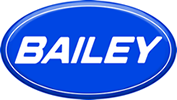DIY Caravan Maintenance: Tips and Tricks for Beginners
Welcome to our latest blog post, where we delve into DIY caravan maintenance. Whether you’re a seasoned caravanner or just starting your journey, understanding the basics of caravan maintenance can save you time, money, and stress.
In this comprehensive blog post, we’ll cover six key areas of caravan maintenance, offering tips and tricks particularly beneficial for beginners.
1. Exterior Care
The exterior of your caravan is its first line of defence against the elements. Regular care and attention can prevent potential damage and keep your caravan looking its best.
Cleaning
Maintaining the cleanliness of your caravan’s exterior is crucial. By avoiding the accumulation of dirt and grime that can, over time, lead to corrosion, it improves its aesthetic appeal and lifespan. Regular cleaning also allows you to spot potential issues, such as cracks or leaks, before they escalate into more significant problems.
Choosing the Right Cleaning Products
When cleaning your caravan, using specialist caravan cleaning products is essential. These products are designed to be gentle on your caravan’s surfaces while removing dirt and grime effectively.
Avoid using cleaning products from the home because they can be too harsh and harm your caravan’s paintwork and seals. Moreover, specialist cleaning products often contain protective elements that can help shield your caravan’s exterior from the elements, further extending its lifespan.
Cleaning Technique
Use a soft brush to scrub the surfaces of your caravan gently. This method ensures you can remove dirt and grime without scratching the paintwork.
Avoid using pressure washers, which can harm seals and paintwork. Instead, opt for a low-pressure hose to rinse off the cleaning product. Always start from the top and work your way down to prevent dirty water from running over clean areas.
Awnings
Clean awnings separately using mild soap and water. Awnings are made from different materials than your caravan’s body and require a gentler cleaning approach. Ensure your awning is completely dry before storing it to prevent mould and mildew growth.
Waxing
Wax your caravan regularly to protect the paintwork from weather conditions. Waxing creates a protective barrier that helps repel water and prevent damage from the sun’s UV rays. It also gives your caravan a glossy finish, enhancing its aesthetic appeal.
Seals and Locks
The seals and locks on your caravan are crucial in keeping the elements out and your belongings secure. Regular maintenance can ensure they continue to function correctly.
Inspecting Seals
Look for any signs of damage or leaks in the window and door seals. The interior of your caravan may become damp and possibly damaged if damaged seals allow water to seep in. Replacing the seals as soon as you see any wear or damage is crucial to stop further harm.
Lubricating Seals
Apply seal lubricant regularly to maintain their flexibility. Over time, seals can become dry and brittle, leading to cracks and leaks. Regular lubrication can help keep them supple and extend their lifespan.
Lock Maintenance
Ensure all locks are functioning correctly. A malfunctioning lock can compromise the security of your caravan. Lubricate locks regularly to prevent them from seizing up. Use a graphite-based lubricant, as oil-based products can attract dust and grime, causing the lock to become sticky over time.
By following these tips, you can ensure that the exterior of your caravan remains in top condition, ready for your next adventure.
2. Interior Care
Maintaining the interior of your caravan is crucial for ensuring a comfortable and enjoyable experience. From the upholstery and surfaces to the appliances, every detail matters. Let’s delve into how you can keep your caravan’s interior in shape.
Upholstery and Surfaces
The upholstery and surfaces in your caravan are not just about aesthetics; they contribute significantly to your comfort and the overall ambience. Here’s how to keep them in pristine condition:
-
Regular Cleaning: Vacuum upholstery and carpets regularly to remove dust and dirt. This not only keeps your caravan clean but also helps to prolong the life of your fabrics. For surfaces, use a non-abrasive cleaner to avoid scratching or damaging them. A discreet area should always be used to test any cleaning product to ensure the material will not be harmed or discoloured.
-
Immediate Spot Cleaning: Accidents happen; when they do, it’s essential to spot-clean any stains on your upholstery immediately. The longer a stain sits, the harder it becomes to remove. Use a fabric cleaner suitable for the fabric you’re cleaning, and always follow the manufacturer’s instructions.
-
Regular Airing: Make sure to regularly air out the caravan to prevent damp and musty odours. This can be accomplished by simply opening the windows and doors for a few hours, particularly after cooking or if the caravan has been shut for some time.
Appliances
Your caravan’s appliances, from the fridge to the heater, require regular maintenance to ensure they work efficiently and safely.
-
Regular Checks: Regularly check that appliances are working properly. This includes checking for any unusual noises, smells, or performance issues. If you notice anything unusual, it’s best to get it checked by a professional.
-
Cleaning: Clean appliances according to the manufacturer’s instructions. This not only helps to prolong their lifespan but also ensures they’re working at their best. For example, fridges should be defrosted regularly for efficient operation.
-
Ventilation: Ensure adequate ventilation for fridges and heaters. A heat buildup caused by inadequate ventilation can harm the efficiency of your appliances and even be dangerous.
By following these tips, you can ensure that the interior of your caravan remains clean, comfortable, and safe, enhancing your overall caravanning experience.
3. Tyre Care
Tyres are the only point of contact between your caravan and the road, making their care and maintenance paramount for your safety and the longevity of your caravan. Regular checks and maintenance can significantly improve your caravanning experience, ensuring a smooth ride and preventing unexpected breakdowns.
Tyre Pressure and Tread
The Importance of Regular Checks
Regularly checking your caravan’s tyre pressure is crucial. Underinflated tyres can cause poor handling, increased fuel consumption, and even tyre blowouts. Overinflated tyres, on the other hand, can lead to reduced grip on the road and increased wear in the tyre’s centre. It’s recommended to check your tyre pressure at least once a month and before every long journey.
Monitoring the tyre tread is another essential aspect of tyre care. The tread on your tyres provides the grip for safe driving, especially in wet conditions. In the UK, caravans’ legal minimum tread depth is 1.6mm across the central three-quarters of the tyre. Regularly inspect your tyres for wear or damage, such as cuts, bulges, or punctures.
Rotating Tyres for Even Wear
Tyre rotation is a practice that can extend the life of your tyres. It involves swapping the tyres around on your caravan to ensure even wear. This is because, over time, tyres wear unevenly due to weight distribution, driving habits, and road conditions. By rotating your tyres, you can balance out these wear patterns, helping to prolong the lifespan of your tyres.
Knowing When to Replace Your Tyres
Understanding when to replace your tyres is vital for maintaining the safety and performance of your caravan. Even if the tread depth is above the legal limit, tyres should be replaced every five to seven years, as the rubber can degrade over time. Look for the tyre’s manufacture date on its sidewall to determine its age. If you notice signs of ageing, such as cracks or crazing in the sidewall, it’s time to replace your tyres.
Tyre care is a fundamental aspect of caravan maintenance. Regularly checking your tyre pressure and tread, rotating your tyres, and knowing when to replace them can ensure a safe and enjoyable caravanning experience.
4. Electrical Systems
The electrical system of a caravan is a critical component that ensures the smooth operation of various appliances and systems. A well-maintained electrical system is crucial for the safety and convenience of your caravanning experience.
Lights and Batteries
Caravan lights and batteries form a significant part of the electrical system. Regular checks and maintenance are essential to ensure their optimum performance.
Regularly Check Lights for Functionality
The lighting system in your caravan is vital for safety and visibility. The lighting system in your caravan is vital for safety and visibility. Inspections should be conducted regularly to ensure all lights function properly.
Maintain Batteries for Optimum Performance
The battery in your caravan powers the 12-volt system, which includes the lighting, water pump, fridge, and additional appliances. Caravan batteries, also known as ‘Leisure’ batteries, are designed to supply currents for longer periods and can be discharged and recharged many times.
Battery life is enhanced if kept well charged, so it should always be kept on a charge if a mains hook-up is available. It’s important to understand your general power usage and the typical power consumption of the various devices you’d use in a caravan.
Manage Power Usage to Avoid Draining Batteries
Managing power usage effectively is crucial to avoid draining your caravan’s battery. The capacity of a battery is quoted in ampere-hours (Ah). The battery size needed can be estimated from a combination of the length of time that the caravan will be in use between charging. The amount of equipment used and the time that equipment is switched on.
Understand the Importance of a Well-Functioning Electrical System
A well-functioning electrical system is vital for your caravan’s safe and efficient operation. It powers all the electrical appliances and systems in your caravan, from the lights to the water pump, fridge, and heating system. Regular checks and maintenance of the electrical system, including the lights and batteries, can ensure that your caravan remains a safe and comfortable place for your adventures.
Maintaining the electrical systems of your caravan, particularly the lights and batteries, is crucial for a safe and enjoyable caravanning experience. Regular checks, understanding your power usage, and proper battery care can ensure the longevity and efficiency of your caravan’s electrical systems.
5. Water Systems
Your caravan’s water systems ensure a comfortable and hassle-free journey. Regular maintenance can prevent potential issues and ensure a reliable supply of water.
This section will delve into the intricacies of your caravan’s freshwater and wastewater systems, offering tips on regular cleaning and maintenance, proper management, and when to seek professional help.
Freshwater and Wastewater Systems
Understanding Your Caravan’s Water System
One of the most complex aspects of caravan maintenance, particularly for new users, is understanding how the water system works. Your caravan’s water system comprises three main components: water pumps, tanks, and heaters.
-
Water pumps are essential for circulating water throughout the system and pipes. There are two types of water pumps: pressure pumps and submersible pumps.
-
Pressure pumps are self-priming and provide a more familiar experience, particularly for showers, as the water flows better.
-
Submersible pumps, on the other hand, are placed in the water tank and ensure that water flows.
Understanding these components and their interaction is the first step towards maintaining your caravan’s water system. Regular checks can help identify any issues early, and understanding the system can help you troubleshoot any problems.
Regular Cleaning and Maintenance of Your Freshwater System
It’s crucial to perform regular checks and maintenance to keep your freshwater system in optimal condition.
-
Start by testing the system: Reconnect all pipes, fill the tank with water, and run it through, checking for leaks.
-
Next, sterilise the system. Drain the water from the tank and pipes and refill with a solution of Puriclean. Leave this to work for 12 hours before flushing the system with fresh water.
-
Finally, replace the old water filter with a fresh one.
Regular cleaning and maintenance of your freshwater system are essential to prevent the buildup of bacteria and other harmful substances. It’s also important to check the condition of your water filter regularly and replace it as necessary.
A well-maintained water system ensures a steady fresh water supply throughout your journey.
Proper Management of Your Wastewater System
Proper management of your wastewater system is just as important as maintaining your freshwater system. The process of draining your caravan, known as a caravan drain down, is crucial to prevent freezing water from causing damage to your caravan.
-
Start by turning off the water supply to your static caravan to perform a caravan drain down. Open your caravan’s drain down taps, which should be found underneath your mobile home.
-
After draining the system, cleaning and disinfecting the wastewater tank regularly is important. This helps to prevent the buildup of bacteria and unpleasant odours.
Remember to use only approved cleaning products to avoid damaging the system.
The Importance of Regular Maintenance
Maintaining your caravan’s water systems is crucial to prevent damage and ensure a smooth and comfortable journey.
If water or fluid is left in the pipes over winter, there is a risk that it will freeze and expand, resulting in burst pipes and potential water damage. To avoid this, it’s important to drain your water system at the end of the season and refill it with antifreeze.
Doing this will ensure that your pipes are safe from the cold and will be functional the next time you need them.
Knowing When to Seek Professional Help
While competent DIY-enthusiasts can handle many aspects of caravan water system maintenance, there are times when professional servicing becomes necessary. If you’re inexperienced or encounter a problem you’re unsure how to fix, it’s best to seek professional help.
For instance, noticing a significant drop in water pressure could indicate a problem with your water pump. This situation may require a warranty and repairs from a professional. Similarly, if your water heater isn’t functioning as expected, it might be time for professional servicing. Attempting to fix these issues yourself could lead to further damage.
Maintaining your caravan’s water systems isn’t about ensuring a comfortable journey. It’s also about preserving the longevity of your caravan. Regular checks and maintenance can prevent potential issues, saving you time, money, and stress in the long run. And when it comes to parts that need replacing, it’s always best to use quality caravan parts from trusted sources.
6. Safety Equipment
Ensuring the safety of your caravan is paramount, and this begins with the regular maintenance and inspection of your safety equipment. This section will guide you through the necessary steps to ensure your caravan’s safety equipment is in top condition.
Fire Extinguishers and Alarms
Fire safety is a critical aspect of caravan maintenance. A fire in a caravan can spread rapidly, and having functional fire safety equipment can be the difference between a minor incident and a major disaster.
Fire Extinguisher Maintenance
Fire extinguishers are your first line of defence in a fire. Regular checks and maintenance are essential to ensure they are in working order. Each month, ensure the pressure gauge is within operating limits and check the extinguisher for any obvious signs of corrosion or damage. It’s also important to ensure the extinguisher is easily accessible in an emergency.
Smoke and Carbon Monoxide Alarms
Smoke and carbon monoxide alarms are vital for detecting fires and gas leaks. If the low battery warning is activated, test these alarms monthly by pressing the test button and replace the batteries annually or sooner. Additionally, replace the entire unit every ten years or as the manufacturer recommends.
Understanding Safety Equipment
Understanding how to use your safety equipment properly is just as important as maintaining it. Familiarise yourself with the operating instructions for your fire extinguisher and alarms. Remember, in the event of a fire, call the fire department immediately, even if you believe the fire has been extinguished.
First Aid Kit
A well-stocked first-aid kit is a must-have in any caravan. Regularly check your first-aid kit to ensure it’s fully stocked and that none of the items have expired. Essential items include bandages, antiseptic wipes, tweezers, medical tape, pain relief medication, and a first-aid manual. Remember, a first-aid kit is a vital tool in case of an accident or injury, but it’s not a substitute for professional medical advice or treatment.
For a secure and enjoyable experience, routine inspections and maintenance of your caravan’s safety equipment are essential. You can make sure you are ready for any emergencies by paying attention to this advice and suggestions.
Conclusion
In conclusion, with regular maintenance and a basic understanding of your caravan’s key systems, you can keep your caravan in top condition and enjoy hassle-free adventures. If you have further questions or require professional servicing, please get in touch with us. We’re here to help you get the most out of your caravanning experience.




